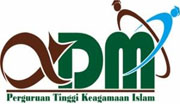Optimization Of a Smart GPS Tracker System to Measure Truck Speed Performance
Abstract
Smart GPS v 3.3" offers features that traditional systems lack, such as real-time monitoring and advanced travel behavior analysis. This study evaluates the speed of trucks and travel performance using Smart GPS v 3.3 and a tracking system from the stockpile to the port (93.89 km). The methods used were field observation and data collection through smart GPS software. The results show that the trucks average speed/month is 31 km/h for loaded trucks and 57 km/h for empty trucks. The average travel time for loaded trucks is 3:05:36, while for empty trucks it is 2:13:48. In the morning, the travel time for loaded trucks is 2:50:49, and at night it is 3:31:28. The travel time for empty trucks in the morning is 2:50:49 and at night is 2:29:11. The use of GPS serves as an evaluation tool for the coal transport for companies to streamline distribution.
Keywords
Full Text:
PDFReferences
L. Fangping, et al,. “Dimensionality Reduction to Reveal Urban Truck Driver Activity Patterns”, Transportation Research Record: Journal of the Transportation Research Board, pp. 81-92. 2018.
S. Rasouli, and H. Timmermans, “Activity-based models of travel demand: promises, progress and prospects”, Int. J. Unity Sci., 18 (1), pp. 31-60, 2014.
G.J. Gabriel, et al. “Smart Urban Traffic Management: Integrating Gps Geolocation and Adaptive Traffic Signal Control for Enhanced Efficiency and Safety”, SSRN. pp.1-16, 2025.
L. Alexander, et al. “Origin–destination Trips by Purpose and Time of Day Inferred from Mobile Phone Data”, springer. vol. 58, pp. 240-250, 2015.
L. Alexander, et al. “Origin–destination Trips by Purpose and Time of Day Inferred from Mobile Phone Data”, springer. vol. 58, pp. 240-250, 2015.
A. Beeco, et al. “GPS tracking of travel routes of wanderers and planners Tourism Geogr”, springer. 15 (3), pp. 551-573, 2018.
B.N. Silva, et al., “Towards Sustainable Smart Cities: A Review of Trends, Architectures, Components, and Open Challenges in Smart Cities”, vol. 38, springer., pp. 697-713, 2018.
L. Shen, P.R. “Stopher Review of GPS travel survey and GPS data-processing methods Transport Rev”, 34 (3)), pp. 316-334, 2014.
F.Mania, et al., “Analysis Freight Corridors Using GPS Data on Trucks”, Transportation Research Record: Journal of the Transportation Research Board, 2478, pp. 113-122. 2015.
E. Stephanie, et al. “Geographic Information Sysetem Tool for Enhancing Administration of over weight –vehicle permits”. Research Record: Journal of the Transportation Research Board, 2478, pp. 75-81. 2015
D. Yuniar, et al., “Truck Driver Behavior and Travel Time Effectiveness Using Smart GPS”, Civil Engineering Journal, Vol. 6, No. 4, pp. 724-732, 2020.
D. Yuniar, et al., “Effect of Driver Behavior on the Coal Truck Trips Movement on Coal Haul Roads”. International Journal of Psychosocial Rehabilitation, 24, pp. 1070-1080 , January 2020.
H. Ohashi, et al., “Trip-extraction method based on characteristics of sensors and human-travel behavior for sensor-based travel survey”, J. Inf. Process., 24 (1), pp. 39-48, 2016.
G.S. Mishra, et al., “An empirical investigation of attitudes toward waiting on the part of Northern California commuters”. Travel Behaviour and Society, 2(2), 78–87, 2015.
World, Bank, “Trade Logistic in The Global Economy, Connecting To Complete”. The Logistic Performance Index and The Indicators. World Bank. 2016.
Y. Jiang, and J. Zhang, “Influence of smartphone apps with driving safety related diagnosis functions on expressway driving speed changes”, J. Transport. Eng. Part A: Systems, 144 (1). 2018.
T. Sakai, et al., “Logistics Chain Modelling for Urban Freight”. Transportation Research Record: Journal of the Transportation Research Board, pp.55–66, 2017.
D. Sarvani and S.P. Srinivas, “Modeling Road Link-Level Truck Travel Times Using On- and Off-Network Characteristics”, Transportation Research Record: Journal of the Transportation Research Board, pp.41-58, 2022.
S.R. Balamurugan and M. Sankaran, “Investigating the contributory factors influencing speeding behavior among long-haul truck drivers traveling across India: Insights from binary logit and machine learning techniques”. International Journal of Transportation Science and Technology, 16, pp. 194-211, 2025.
D. Yuniar, et al., “Effects of Coal Freight Road Policy Reforms on Transportation and Environmental Economics”, IOP Conference Series: Earth and Environmental Science, 328, pp.1-7, 2019.
R.S. Mohammad, “The Influence of Truck Speed on Pavement Defect”, International Journal of Pavement Engineering, pp. 21-28, 2022.
C. Chen, et al., “Travel Time Reliabilility as a Measure of Service”, Procedia - Sosial and Behavioral Sciences 54 / 15th meeting of the EURO Working Group on Transportation, Elsevier, pp. 696-705, 2003.
W. Zun, et al., “Measuring Truck Travel Time Reliability Using Truck Probe GPS Data”, Journal of Intelligent Transportation Systems, Technology, Planning and Opeartions, 20, pp. 103-112, 2016.
L.Van, et al., “Travel time unreliability on freeways: Why measures based on variance tell only half the story”, Transp. Res. Part A 42 (1), pp. 258–27, 2016.
V.D.S Sjoerd, et al., “Predictive Analytics for Truck Arrival Time Estimation: A Field Study at a European Distribution Center”, International Journal of Production Research Vol., No., 00 Month, 1–21, 2016.
DOI: http://dx.doi.org/10.30829/zero.v9i1.24660
Refbacks
- There are currently no refbacks.

This work is licensed under a Creative Commons Attribution-ShareAlike 4.0 International License.
Publisher : Department of Mathematics Faculty of Science and Technology Universitas Islam Negeri Sumatera Utara Medan | |
✉️ Email: zero_journal@uinsu.ac.id 📱 WhatsApp:085270009767 (Admin Official) | |
 |  |  |  |  |



